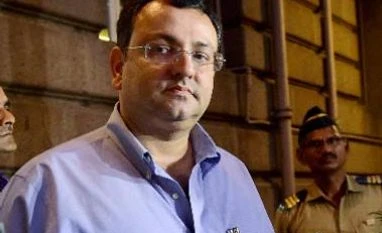Former Tata Sons chairman Cyrus Mistry wrote to the shareholders of Tata Motors and Tata Chemicals to seek their support against the special notice to remove him as director from the boards of both companies.
Mistry faces shareholders’ voting at Tata Motors’ extraordinary general meeting (EGM) on December 22 called by Tata Sons to oust him as a director of Tata Motors. A similar EGM has been called to remove him as director of Tata Chemicals on December 23.
In letters to shareholders of both companies seeking their support, Mistry wrote: “We indeed live in unique times. In the ordinary course, one would not expect a representation about a proposal to remove a director when the controlling shareholder seeks to do so. But, this extraordinary general meeting has been called in extraordinary circumstances. It is my duty to place before you a full perspective of the facts and factors that are in play.”
Mistry said there was a crying need to reclaim the glory of the Tata group, and that the governance framework needed urgent repair at the level of Tata Sons, the holding company of Tata Motors, and at Tata Trusts, which are the major shareholders of Tata Sons. He said the entire Tata group was at an inflexion point and that “the movement to reform cannot and will not be arrested”.
In his bid to seek their support, he wrote: “I urge you to have your voice heard loud and clear. I ask you to be a part of defining the future.”
On Tata Motors, Mistry said the company suffered from product portfolio, quality and service responsiveness issues besides drag from some ‘legacy’ passenger car product lines leading to an adverse impact on the brand.
Also Read
“Apart from product portfolio issues, Tata Motors suffered from issues relating to quality and service responsiveness, all having an adverse impact on the brand,” Mistry wrote.
He said, “During the past four years, the market has become significantly competitive, with five MNCs launching about 50 new products. During this time, Tata Motors launched only two new products – the Bolt and Zest – which were an evolution of the past design language.”
Other models such as the Manza, Vista and Safari Storme were seen as only facelifts, he added.
The existing product pipeline needed a great deal of work to ensure the company had aspirational products going into the future, Mistry said.
“Lastly, we had had some legacy passenger car product lines, which had a large negative contribution and suffered from large discounts in the marketplace further eroding market share and brand perception,” Mistry added.
Commenting on after sales and service, he said: “Apart from the product portfolio issues, Tata Motors suffered from issues relating to quality and service responsiveness, all having an adverse impact on the brand.”
In this period, major new players strengthened their position with re-engineered products specifically designed for the Indian market, he added. On new product line-up, Mistry said the Kite 5, the Hexa and a new compact sports utility vehicle (SUV) are expected to be launched in the near future.
On its British arm Jaguar Land Rover (JLR), Mistry said the company is at a critical juncture.
“The decisions taken today will decide its future resilience. The company faces many challenges, but also many opportunities. The strategy at JLR has been to achieve scale as well as minimise currency and supply chain risks by investing in new facilities,” he said.
JLR’s lack of scale required it to invest disproportionately compared to the industry in new technologies that will help meet regulatory requirements and differentiate its products, Mistry said.
JLR’s lack of scale required it to invest disproportionately compared to the industry in new technologies that will help meet regulatory requirements and differentiate its products, Mistry said.
“All this has been done without leveraging the balance sheet and retaining adequate liquidity. The result is a stronger company that will reward the shareholders more consistently in the future.”
Mistry cautioned shareholders of Tata Chemicals that a structural solution needs to be explored in the long term for the company’s UK operations, which are bleeding.
“The turnaround plan for the UK involved commissioning a steam turbine to reduce energy costs, closing the Winnington plant, refining the hedging policy and exploring sale of excess land assets,” he wrote.
Mistry further said: “All of this also necessitated a large write-off. In the long term, a structural solution needs to be explored.”
Tata Chemicals had acquired European company Brunner Mond with plants in the UK as part of the Magadi acquisitions. “However, these had high costs of production, particularly high energy costs and low productivity,” he said.
Tata Chemicals is engaged in many businesses such as soda ash, salt, fertilisers, pulses and spices. It had entered into an agreement with Norway’s Yara to sell its urea business.
Tata Motors and Tata Chemicals have convened EGMs on December 22 and December 23, respectively, to oust Mistry and Nusli Wadia as directors of the company. Mistry, however, continues to be the company's chairman.
Tata Sons holds 26.51% stake in Tata Motors and 30.8% in Tata Chemicals.
)